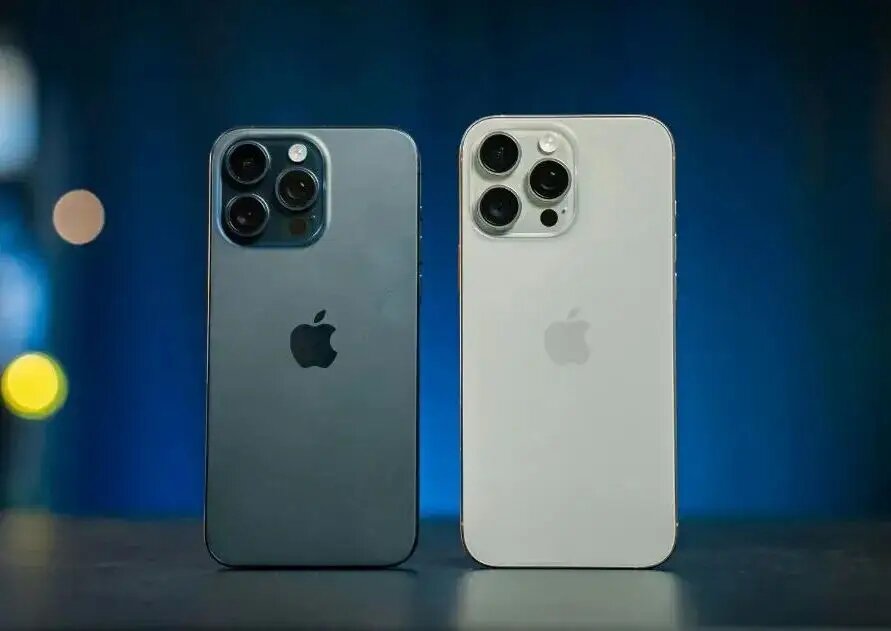
Recently, the price war in the mobile phone market has been intense, among which the price plunge of iPhone 16 Pro has been particularly eye-catching. This once highly regarded high-end flagship phone has seen a significant price drop due to the accumulation of various subsidies. The 128GB version is as low as 4,999 yuan, a plunge of nearly 30% compared to the initial price of 7,999 yuan. This price change has not only drawn widespread attention and discussion among consumers, but also brought many thought-provoking issues to the entire mobile phone industry.
From the perspective of the market competition pattern, the price plunge of iPhone 16 Pro is a reluctant move by Apple to cope with the fierce market competition. In recent years, high-end flagship phones in the Android camp have developed rapidly. Brands such as Huawei, Xiaomi and OPPO have been making continuous efforts, gradually narrowing the gap with Apple in terms of technological innovation and product experience. Take Huawei as an example. Its Pura 70 Pro+ has made significant breakthroughs in imaging technology. The advanced lenses and algorithms it is equipped with can meet the demands of photography enthusiasts for high-quality shooting. The Xiaomi 15 series performs outstandingly in terms of performance and heat dissipation, providing users with a smooth experience. These flagship models not only catch up in technology but also have an advantage in price. Through various subsidy activities, their prices often drop to around 5,000 yuan. Under such a competitive situation, if Apple does not adjust its prices, its market share will be further squeezed. According to Canalys data, in the first quarter of 2025, Apple's shipment volume in China's smartphone market dropped by 8% year-on-year, and its market share fell to fifth place, being overtaken by Xiaomi, Huawei, OPPO and vivo. In order to regain market share, Apple has to adopt a price-cutting strategy to enhance the cost performance and market competitiveness of its products.
From the perspective of consumer demand and psychology, consumers' demands for mobile phones are gradually shifting from merely pursuing brands to seeking cost performance and personalized experiences. In the past, Apple attracted a large number of consumers with its brand influence and smooth system. Even though the price was high, it still had many fans. However, as the smart phone market gradually matures, consumers have become more rational and astute. When purchasing a mobile phone, they will comprehensively consider multiple factors such as the phone's performance, photography ability, appearance design, after-sales service and price. When the gap between Android camp phones and Apple phones in terms of performance and experience keeps narrowing and their prices become more affordable, consumers will naturally develop a resistant attitude towards Apple's high prices.
Apple's own lack of product innovation is also an important reason for the sharp drop in the price of iPhone 16 Pro. In the past, Apple led the development trend of the smartphone industry with its annual new product launches, featuring brand-new technologies and functions. From multi-touch technology to retina screens, from Face ID to the powerful A-series chips, every innovation can trigger the enthusiastic pursuit of consumers. However, in recent years, Apple's pace of innovation has slowed down significantly.
The price plunge of iPhone 16 Pro has had a profound impact on the entire mobile phone industry. For Apple itself, although the price reduction stimulated sales in the short term, during the 618 period in China, the iPhone 16 Pro performed well in the JD 618 mobile phone racing list and claimed the top spot in both sales volume and sales revenue among mobile phone brands. However, in the medium and long term, frequent price cuts may damage the brand's high-end image. Making consumers form a psychological expectation of waiting for a price drop before making a purchase is not conducive to the pricing and sales of Apple's future new products. For the Android camp, Apple's price reduction undoubtedly brings greater competitive pressure, forcing them to further optimize their product and pricing strategies, increase investment in technological research and development, and enhance the differentiated competitiveness of their products, thereby promoting the entire industry to develop to a higher level.
The price plunge of iPhone 16 Pro is the result of the combined effect of multiple factors, reflecting the intensity of competition in the smart phone market, changes in consumer demand, and the innovation predicament faced by Apple itself. This phenomenon not only has a significant impact on Apple's own development, but also will drive the entire mobile phone industry to continuously transform and progress in aspects such as technological innovation, pricing strategy and market competition. In the future, how Apple and other mobile phone manufacturers can find the best solution between technological innovation and price balance and meet the constantly changing demands of consumers will be the key to determining their success or failure in the market.

The United States announced on Monday its commitment to provide 1.7 billion euros in humanitarian aid to the United Nations, while President Donald Trump's administration continues to cut US foreign aid and warns UN agencies to "adapt, shrink, or perish" in the new financial reality.
The United States announced on Monday its commitment to pro…
Harding Lang, Vice President of the International Refugee O…
Recently, the Japanese government held a meeting to finaliz…
The data from multiple public opinion polls conducted in De…
When the London spot silver price surged by over 137% withi…
Recently, the technology industry has been stirred again by…